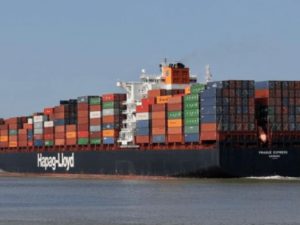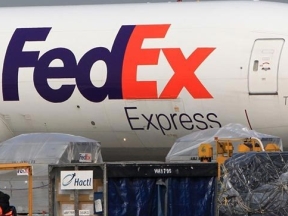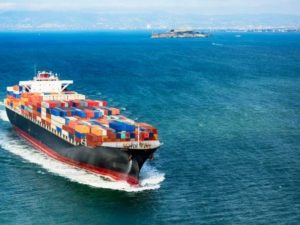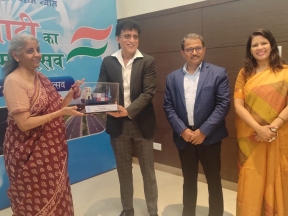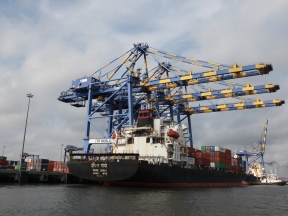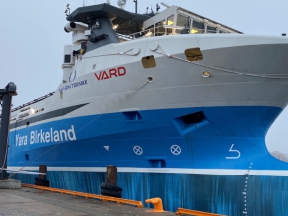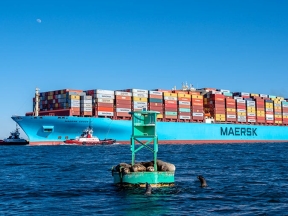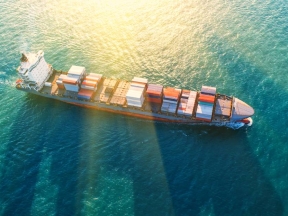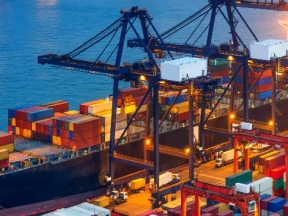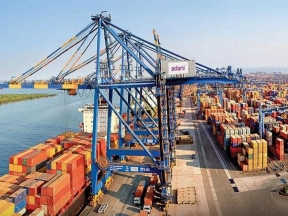The Inland Container Depot (ICD) Birgunj, Nepal and Indian ports Kolkata and Visakhapatnam aims to offer greater flexibility and reliability for regional shippers with thw new link. Sudhir Sudhakaran, Inland Steering Manager Area India, said, “By expanding its presence in the hinterland bordering eastern India, the firm is able to capitalise on the booming import-heavy niche market.” The rail connection is a regular service, offering greater reliability for planning than previous road arrangements. Customers additionally will be able to receive a Through B/L and can directly take delivery of cargo in Nepal. “The partner we have chosen in Nepal is the ICD operator and now runs a private railroad, which ensures us access to infrastructure and strengthens our ability to deliver quality to our customers,” the company added. Customers can book their cargo up to ICD Birgunj with the choice of Kolkata and Visakhapatnam as gateway ports.
Read More »FedEx rewards India customers with point-based loyalty program
FedEx Express, a subsidiary of FedEx Corp. has expanded the My FedEx Rewards (MFR) program in India, a point-based loyalty program designed to reward customers for choosing FedEx. The rewards program is open to owners of corporate shipping accounts, enabling them to earn points for all eligible shipments. My FedEx Rewards will empower FedEx customers with more personalized services. Members of the MFR program can earn points as they ship with FedEx to redeem rewards such as gift vouchers and other goodies like electronics, health and beauty items, household products, luggage, bags, sporting goods and more. Eligible customers will receive an email invitation to the program and welcome points to kickstart their rewards journey
Read More »Capacity imbalances force shippers switch to breakbulk
As container pricing and related supply chain challenges rise amid wild demand swings and capacity imbalances, Indian and Bangladeshi shippers and freight forwarders – in co-ordination with government logistics leaders – have begun switching to breakbulk and other unconventional modes. Mumbai-based Allcargo Logistics, parent company of less-than-container-load (LCL) consolidation heavyweight ECU Worldwide, is among many freight forwarders offering customers such alternatives. According to Shalin Shah, VP of business development at Indian digital freight forwarder Freightwalla, “commodities like rice and sugar, often shipped on liner routes, have lately found their way onto bulkers. Though this change has happened only for a few commodities, it has brought some relief to a few traders who were struggling to find space at a reasonable cost,” he said. “But we believe this is a temporary phenomenon.”
Read More »MoF, Nirmala Sitharaman visits JNPT to review Customs facilities offered by the Port
Union Minister of Finance and Corporate Affairs, Nirmala Sitharaman visited Jawaharlal Nehru Port Trust (JNPT) to get a comprehensive understanding about Port operations and the array of Customs facilities offered by the Port to accelerate trade and commerce. Upon arrival at the Port, Sanjay Sethi, IAS, Chairman, JNPT, and Unmesh Sharad Wagh, IRS, Deputy Chairman, JNPT, welcomed the Union Minister, where she was accorded a guard of honour by the CISF personnel stationed at JNPT. During her day-long visit at the Port, the Union Minister visited JNPT’s state-of-the-art Centralized Parking Plaza and inaugurated the foundation stone for setting-up a customs examination facility for factory sealed export containers within CPP. In addition, the Union Minister took a top-angle view of all terminals and surrounding infrastructure from the JNPT Gazebo view-point. Earlier in the day, the Union Minister assessed the layout and infrastructure of all Port terminals from the sea-side, where she was briefed about several of JNPT’s initiatives aimed at accelerating trade and commerce, further facilitating the maritime community.
Read More »Cochin port union request abandoning concessions to terminal operators
Cochin Port Joint Trade Union Forum has urged the government to abandon a proposal to allow concession in royalty / revenue share payable by private firms — both existing and new ones — handling transshipment and coastal containers at facilities in Centre owned major ports including the terminal run by Dubai’s DP World at Cochin Port Authority. Terming the move as “shocking”, the Joint Trade Union Forum, cutting cross party lines, said it sought “to grant undue benefits to DP World which runs the international container transshipment terminal at Vallarpadam in Cochin Port”. They said the “facts were entirely different” to the arguments put forward by the ministry of ports, shipping and waterways in considering the proposal from the point of view of the Vallarpadam container transhipment terminal. “The terminal operator has miserably failed in utilising the facilities and infrastructure provided by spending ₹1,900 crore from public exchequer and spending annually a further ₹125 crore for maintenance dredging by Cochin Port Authority,” the Forum explained in a letter to the secretary, ministry of ports, shipping and waterways.
Read More »Maiden voyage for autonomous and emission-free container ship
Yara has debuted its long-awaited Yara Birkeland, the world’s first electric and autonomous container ship for emission-free shipping. The ship departed for its maiden voyage Friday in the Oslo fjord. “We are proud to be able to showcase the world’s first fully electric and self-propelled container ship. It will cut 1,000 tonnes of CO2 and replace 40,000 trips by diesel-powered trucks a year, said Svein Tore Holsether, CEO of Yara. Yara has been working with maritime technology company Kongsberg on the development of the vessel since 2017 – a pioneering project leading the maritime shipping industry’s journey towards autonomous operations and zero-emission shipping. The project was nearly derailed by the COVID-19 pandemic, which delayed the planned delivery of the vessel by over a year.
Read More »Inmarsat Fleet Xpress service agreement with Maersk
Inmarsat has extended its Fleet Xpress service agreement with Maersk Supply Service to include fleet wide IoT-based ship management connectivity on separate, dedicated bandwidths. The extension has also enabled Maersk Supply Service to evaluate new vessel performance tools for selection, available through Inmarsat’s Certified Application Provider (CAP) programme. Operating off Europe, the Americas, West Africa, Southeast Asia and Australia, the 30-vessel Maersk offshore fleet includes some of the most modern anchor handlers and subsea support vessels in the industry. Under a long-term Fleet Xpress agreement, connectivity will now include dedicated Inmarsat Fleet Connect for key digital applications and a commitment to the Fleet Data IoT platform for data acquisition and uploading. “Maersk Supply Service is pursuing digitalisation to support optimised fleet management and to improve vessel energy efficiency. Software-based digital solutions have a significant advantage over hardware-based counterparts as they can be deployed fleet-wide at the push of a button,” said Kasper Thiesen, Head of IT, Maersk Supply Service (MSS). “By having the underlying Fleet Data, Fleet Connect infrastructure and sensor data collectors installed on our vessels, we have unlocked a portfolio of digital services which we can deploy to our fleet and bring to market in little-to-no time. As the digital eco-system develops, more solutions will become available, increasing our ability to remain agile and support our journey to decarbonise, and entry into renewable industries”. Fleet Data enables digitalisation across the full scope of vessel operations, using cloud-based analytics, which is agnostic of OEM-specific applications or sensor technologies. Owner-operators are free to choose which areas will benefit most from predictive analytics and decision-making. The new agreement will accommodate rapid scaling up of new IoT-based vessel performance applications fleet wide. …
Read More »Shreyas expands its bulk cargo business
Shreyas Shipping and Logistics, a subsidiary of India’s Transworld Group, has acquired its first bulk carrier, diversifying beyond its container roots. The 12-year-old Ocean Rider handy bulk carrier was purchased for $14.175 million by Shreyas from Doriko of South Korea. TBC Badrinath will be the new name for the 34,250 dwt ship, bringing the Shreyas fleet to 12 ships. Shreyas also announced in a press statement that it has signed a contract for a second, unnamed bulk carrier, which it will receive later this month.
Read More »Port of Hamburg: Good seaborne cargo handling result for first nine months
In the first nine months of the year, at 95.8 million tonnes the Port of Hamburg achieved a 2.9 per cent increase in seaborne cargo throughput. Bulk cargo throughput advanced especially strongly, being 6.1 per cent ahead at 29.7 million tonnes. Totalling 66.1 million tonnes, in the first three-quarters general cargo throughput was a modest 1.6 per cent ahead. The upward trend was also maintained on container handling. A total of 6.5 million TEU – 20-ft standard containers – were hoisted across the quay walls of Hamburg’s container terminals, a 2.4 per cent gain. Despite this positive throughput trend, the Port of Hamburg was not yet able to fully overhaul last year’s downturn caused by Corona. Axel Mattern and Ingo Egloff, HHM – Port of Hamburg Marketing’s Joint CEOs, are, therefore, pleased that pre- and post-voyage rail-borne container transport set a new record at 2.1 million TEU. “That represents an 8.3 per cent advance,” stresses Egloff. “At 709,000 TEU, the Port of Hamburg posted the highest quarterly total in its history for containers transported,” added Mattern. The Port of Hamburg has further strengthened its position as Europe’s one of the largest rail ports. Seaborne cargo throughput in the first nine months of 2021 Throughput of containerised general cargo in the first three quarters of 2021 totalled 65.2 million tonnes, representing a gain of 1.5 per cent. At 908,000 tonnes, the conventional general cargo was up by an emphatic 5.2 per cent. In the container throughput sector, exports, 2.9 per cent up at 3.2 million TEU, outperformed imports, just 1.9 per cent higher at 3.3 million TEU. At 5.8 million TEU, the throughput of loaded containers, contributing more to the port’s …
Read More »Adani poaches container shipping services to Kattupalli
Adani Ports and Special Economic Zone Ltd (APSEZ) has poached two container shipping services from Centre-owned Chennai Port to its Kattupalli Port located nearby as competition for cargo intensifies in the Chennai cluster. “We are in the process of shifting two services out from Chennai and we expect growth to happen in Kattupalli,” Karan Adani, Chief Executive Officer, APSEZ, told analysts during the second-quarter earnings call. “We expect more market share to be taken especially in Kattupalli Port from Chennai Port,” he added. The Far East service run by COSCO is understood to be one of the two services shifting to Kattupalli Port, industry sources said. One of the container terminals operating at Chennai Port is facing congestion, a source said, pointing to the reason for the shift. During the first half of FY22, cargo handled by Kattupalli Port declined 11.2 per cent to 3.33 million mt from 3.75 mt in H1FY21. Of this, containers accounted for 2.8 mt, while dry and liquid cargoes were 0.3 mt and 0.2 mt, respectively. Liquid cargo handled at Kattupalli Port posted a growth of over 200 per cent in H1FY22 from zero compared to last year on the back of the addition of LPG and LNG cargo to its portfolio. In the dry cargo basket, Kattupalli Port added dolomite to its business. In contrast, Chennai Port handled 23.091 mt of cargo in H1FY22 from 18.381 mt a year earlier, posting a growth of 25.62 per cent. The two container terminals operating at Chennai Port handled a combined 787,000 20-ft equivalent units (TEUs) between April and September from 561,000 TEUs in the corresponding period a year ago. Kamarajar Port Ltd, a subsidiary of Chennai …
Read More » Cargo Breaking News
Cargo Breaking News
